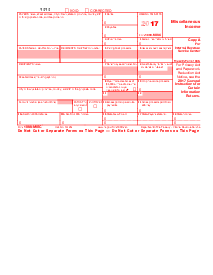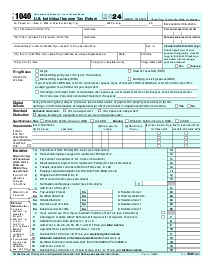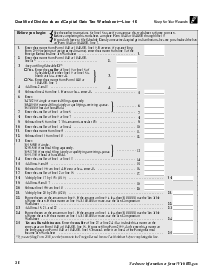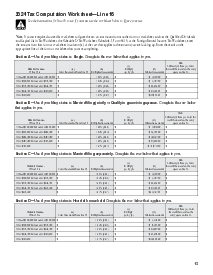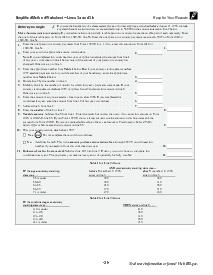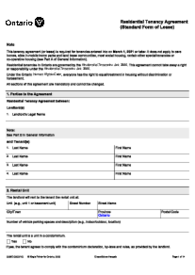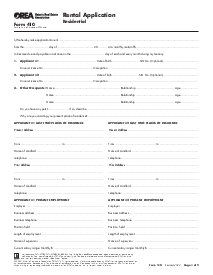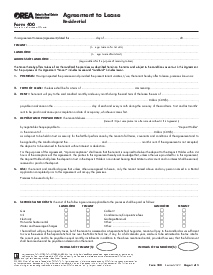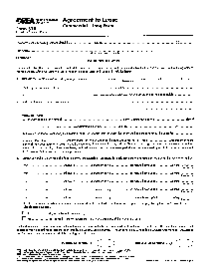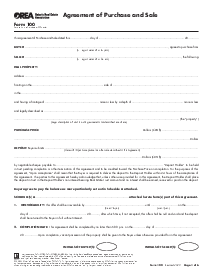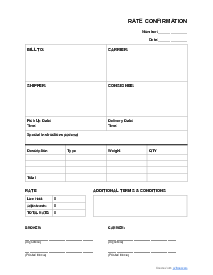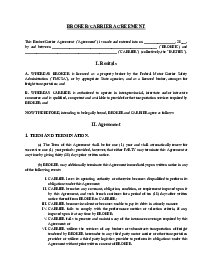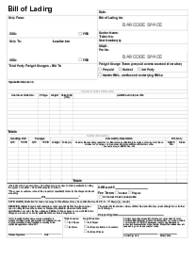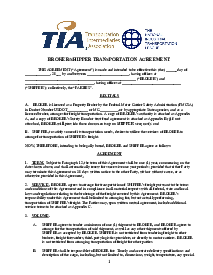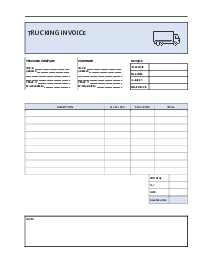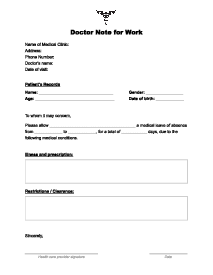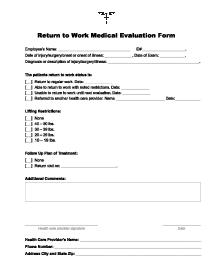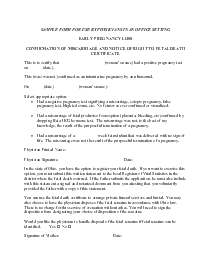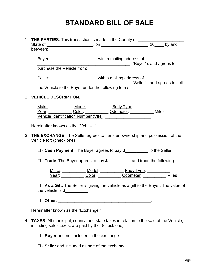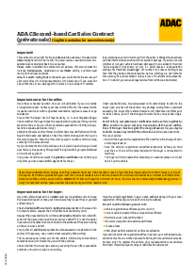-
Templates
1099 FormsAccurately report 1099 information returns and ensure IRS filing with easeExplore all templatesW-9 W-8 FormsEasily manage and share taxpayer details to streamline payments and meet IRS requirements with confidenceExplore all templatesOther Tax FormsFillable tax forms simplify and speed up your tax filing process and aid with recordkeeping.Explore all templatesReal EstateReal estate templates for all cases, from sale to rentals, save you a lot of time and effort.Explore all templatesLogisticsSimplify your trucking and logistics paperwork with our ready-to-use transportation and freight templates.Explore all templatesMedicalMedical forms help you keep patient documentation organized and secure.Explore all templatesBill of SaleBill of Sale templates streamline the transfer of ownership with clarity and protection.Explore all templatesContractsVarious contract templates ensure efficient and clear legal transactions.Explore all templatesEducationEducational forms and templates enhance the learning experience and student management.Explore all templates
-
Features
FeaturesAI-Enhanced Document Solutions for Contractor-Client Success and IRS ComplianceExplore all featuresAI Summarizer Check out the featureAI PDF summarizer makes your document workflow even faster. Ask AI to summarize PDF, assist you with tax forms, complete assignments, and more using just one tool.Sign PDF Check out the featurePDFLiner gives the opportunity to sign documents online, save them, send at once by email or print. Register now, upload your document and e-sign it onlineFill Out PDF Check out the featurePDFLiner provides different tools for filling in PDF forms. All you need is to register, upload the necessary document and start filling it out.Draw on a PDF Check out the featureDraw lines, circles, and other drawings on PDF using tools of PDFLiner online. Streamline your document editing process, speeding up your productivity
- Solutions
- Features
- Blog
- Support
- Pricing
Digital Nomad Taxation in the US: All You Need to Know
.png)
Dmytro Serhiiev
Tax regulations in the US are renowned for their intricate nature, causing notable perplexity for US citizens who frequently travel or reside overseas. To unravel the nuances of this overall complex subject, in this post, we’ll delve into the fundamental principles governing taxes for digital nomads. Let’s start with the meaning behind a digital nomad USA.
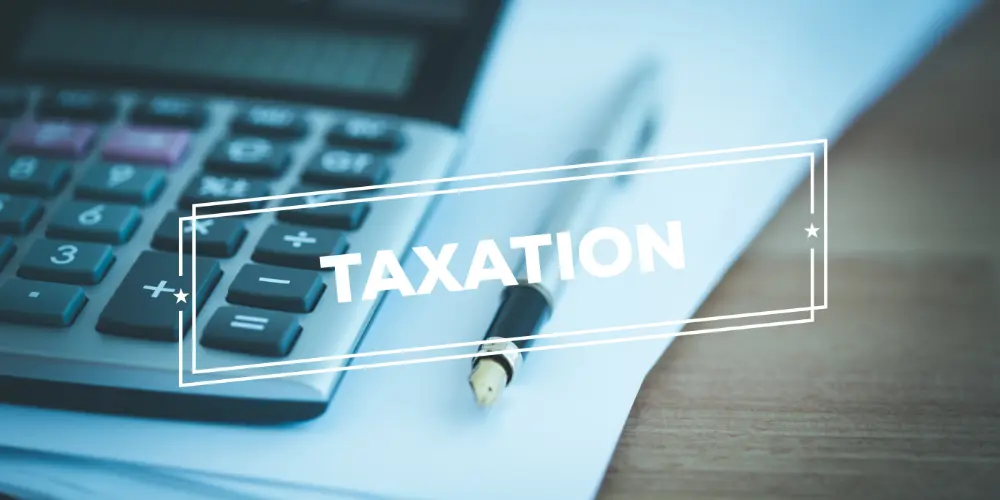
What Is a Digital Nomad in the US Taxation System
In the United States, digital nomads are individuals who embrace a location-independent lifestyle, utilizing technology to work remotely while traversing different destinations. These modern adventurers often blur the lines between work and travel, making the world their office. When it comes to obligations within the tricky US taxation system, traveling entrepreneurs' responsibilities are contingent upon their citizenship status.
For US citizens, it comes down to:
- Global Income. US citizens must report their global income, regardless of where it's earned.
- Foreign Tax Credits. To mitigate the risk of double taxation, American digital nomads can claim foreign credits for taxes paid to foreign governments.
- Foreign Earned Income Exclusion. Under this provision, a portion of income earned abroad might be excluded from federal taxes if specific criteria are met.
- Filing Requirements. Even if residing abroad, US citizens must fulfill their annual tax filing obligations, disclosing their income and assets.
For non-US citizens:
- Substantial Presence Test. Non-US digital nomads need to determine their US tax residency using the substantial presence test. If met, they're subject to US taxation on their worldwide income.
- Tax Treaties. Tax treaties between the US and their home countries might impact their liability, potentially reducing certain rates.
- Source Income. Income sourced within the US is typically subject to taxation, but income generated from foreign sources might be exempt.
Digital Nomad US Taxes Checklist

For US citizen traveling entrepreneurs, properly managing taxation is pivotal. Here's a comprehensive checklist tailored to your needs, ensuring a smooth journey through the not-so-straightforward world of US obligations:
- Set up your US business entity. Establishing a suitable business structure not only offers liability protection but can also open doors to deductions and favorable tax treatment.
- Keep track of income. Diligently monitor your earnings, including income reported on 1099 and W-9 forms. Meticulous record-keeping is crucial for accurate reporting.
- Estimate and pay taxes every quarter. Stay ahead by estimating your liability each quarter using the 1040-ES form. Timely payments help you avoid penalties and efficiently manage your cash flow.
- Make deductions:
- Foreign Earned Income Exclusion (Form 2555). If you meet the criteria, exclude a portion of your foreign-earned income from taxation.
- Housing Deduction. Claim housing-related expenses if eligible, further reducing your taxable income.
- Foreign Tax Credit (Form 1116). Offset US tax liability by claiming credits for taxes paid to foreign governments.
- File tax returns online. This approach is guaranteed to boost your administrative affairs and save heaps of your treasured time. Here are key forms to make the most of in this sense:
- Form 1040. Utilize this doc to report your total income and deductions.
- Schedule C. Use the form for reporting profit or loss from your business activities.
- Schedule SE. Use it to calculate self-employment tax on your net earnings.
- Form 8938. Use it to report specified foreign financial assets if they exceed certain thresholds.
When it comes to non-US citizen digital nomads engaging with US entities, they must navigate the corridors of taxation with finesse. Here's a comprehensive checklist tailored to your specific circumstances, ensuring a confident journey through the maze of US tax obligations:
- Obtain a TIN (Taxpayer Identification Number). Secure a TIN from the IRS to establish your tax identity, a fundamental step in ensuring accurate tax reporting and compliance.
- Fill out W-9s or W-8BEN for all your US clients. Depending on your eligibility, complete blank W9 to provide your TIN to US clients. Alternatively, opt for W-8BEN forms to avail of potential tax treaty benefits and mitigate excessive withholding.
- Keep all 1099s. Maintain meticulous records of every 1099 form received from your US clients, as these documents delineate your income sources, aiding precise reporting and potential deductions.
- Fill out a return only if needed. Your obligation to file a return hinges on specific factors such as working within the US during the year or having taxes withheld by your client. Scrutinize these aspects to ascertain your necessary filing action.
These two checklists provided above cater to the unique taxation scenarios faced by traveling entrepreneurs. For US citizens, the emphasis is on strategic estimation and deduction optimization within the elaborate tax code.
For non-US citizens, the focus shifts to diligent documentation, withholding compliance, and benefiting from potential tax treaty advantages. Both checklists underscore the significance of proactive tax management and, if required, seeking expert counsel to effortlessly cope with difficulties. Meanwhile, compliance is fortified, and financial efficacy is maximized.
Tips for Digital Nomads in the US

Embarking on a journey as a digital nomad in the United States demands a profound understanding of the tax nuances that accompany such a lifestyle. By exploring the comprehensive tips, insights, and strategies outlined below, traveling entrepreneurs can equip themselves with the knowledge needed to make informed decisions and seamlessly manage their obligations while embracing the freedom of a location-independent lifestyle.
1. Change Residency to Tax-Flexible States
Before departing the US as a digital nomad, consider shifting your residency to a state with favorable tax regulations. This strategic move can significantly impact your liabilities. Opt for states with no income tax or those that don't tax out-of-state earnings. Ensure you establish a substantial presence in your new state of residency by:
- registering your domicile;
- acquiring a local driver's license;
- registering to vote;
By doing so, you can make the most of the tax benefits of your chosen state while living a nomadic lifestyle.
2. Consider Tax Laws When Choosing Your Next Country
Selecting your next destination as a digital nomad should involve a careful analysis of the host country's laws. This decision can significantly influence your obligations. Prioritize countries with:
- favorable rates for foreign income;
- double taxation agreements with the US;
- beneficial incentives for entrepreneurs;
- clear guidelines on tax residency.
By aligning your travels with tax-friendly nations, you can optimize your financial situation while exploring new horizons. Ensure you understand the local requirements and potential benefits before settling in a new country.
3. Keep your documents in order
Maintaining organized documentation is crucial for smooth tax management as a digital nomad in the US. Stay diligent by:
- Receipts and Invoices. Preserve records of all business-related expenses and income.
- Bank Statements. Keep track of your financial transactions and transfers.
- Travel Records. Document your entry and exit dates from different countries.
- Tax Forms. Secure copies of W-9s, W-8BENs, and 1099s received.
- Residency Proof. Safeguard documents by establishing residency in tax-friendly states.
By ensuring your paperwork is well-maintained, you streamline tax filing, deductions, and compliance, simplifying your financial journey.
4. Use deduction possibilities
While exploring digital nomad taxes in the US, making the most of available deductions can optimize your financial outlook. Exploit deduction opportunities by:
- Foreign Earned Income Exclusion (FEIE). Exclude a portion of your foreign earnings from taxation, if eligible.
- Housing Deduction. Claim housing-related expenses to further reduce taxable income.
- Foreign Tax Credit (FTC). Offset US taxes with credits for foreign taxes paid.
- Business Expenses. Deduct costs essential to your remote work setup.
- Travel Expenses. Deduct travel-related expenses when they align with your business.
By comprehensively exploring deduction options, you minimize tax liabilities and retain more of your hard-earned income while sustaining your nomadic lifestyle.
5. Pay taxes on time
Timely payments are paramount for digital nomads operating within the US tax framework. Ensure punctuality by:
- Quarterly Estimated Payments. Submit Form 1040-ES quarterly to avoid penalties.
- Filing Deadlines. Adhere to the April 15th deadline for annual returns.
- Extension Requests. If needed, file for an extension but pay any owed taxes to evade penalties.
- State Taxes. Stay mindful of state-specific deadlines and requirements.
By meeting obligations promptly, you prevent fines and complications while maintaining a favorable standing with authorities, allowing you to focus on your nomadic pursuits without financial interruptions.
FAQ
Do you pay self-employment tax as a digital nomad?
As a traveling entrepreneur, you might be subject to self-employment tax. If your income qualifies as self-employment earnings, you're generally responsible for paying both the employee and employer portions of Social Security and Medicare taxes. This ensures your contribution to these programs and their benefits.
Can I avoid taxes if I live in another country?
Living in another country as a digital nomad doesn't guarantee complete tax exemption. Tax liability hinges on factors such as your home country's laws, residency status, and income sources. Many countries have their own rules for taxing foreign income. Understanding international regulations and seeking professional guidance is vital.
Do I have to file a tax return as a digital nomad living in the US?
Yes, as a digital nomad residing in the US, you likely have to file a return. Whether you're a US citizen or not, your filing requirement depends on your income, tax treaties, and residency status. Reporting your global income ensures compliance with tax regulations and avoids potential penalties.
What is the tax rate for digital nomads?
The rate for traveling entrepreneurs varies based on factors like income level, filing status, and jurisdiction. In the context of digital nomad US taxes, tax rates range from 10% to 37%. Additionally, other countries have their own tax structures, often influenced by residency and income sources. By consulting experts, you ensure an accurate understanding of applicable rates.
Filing Taxes is Easy with PDFLiner
Find and edit all the fillable IRS forms in one place


